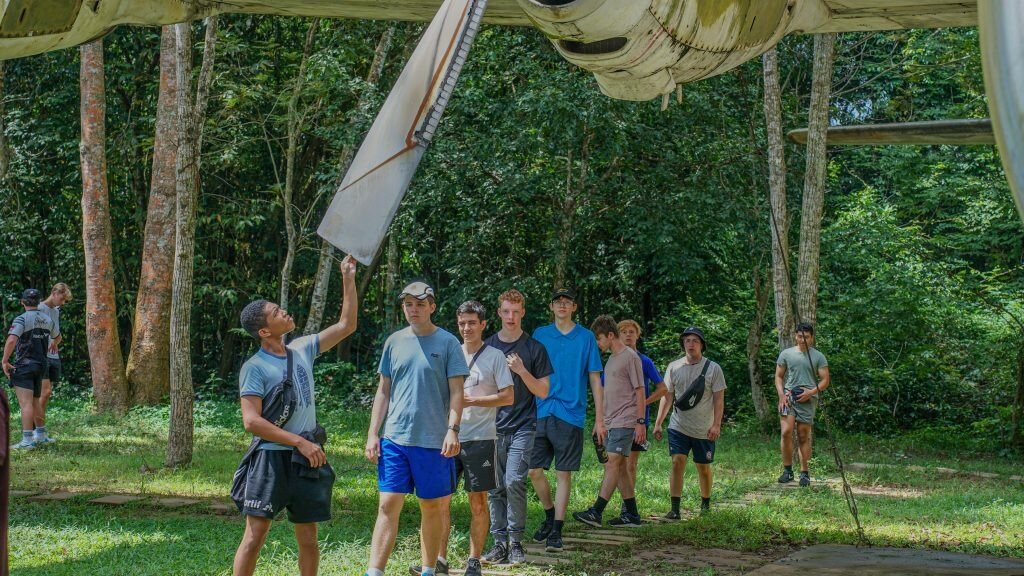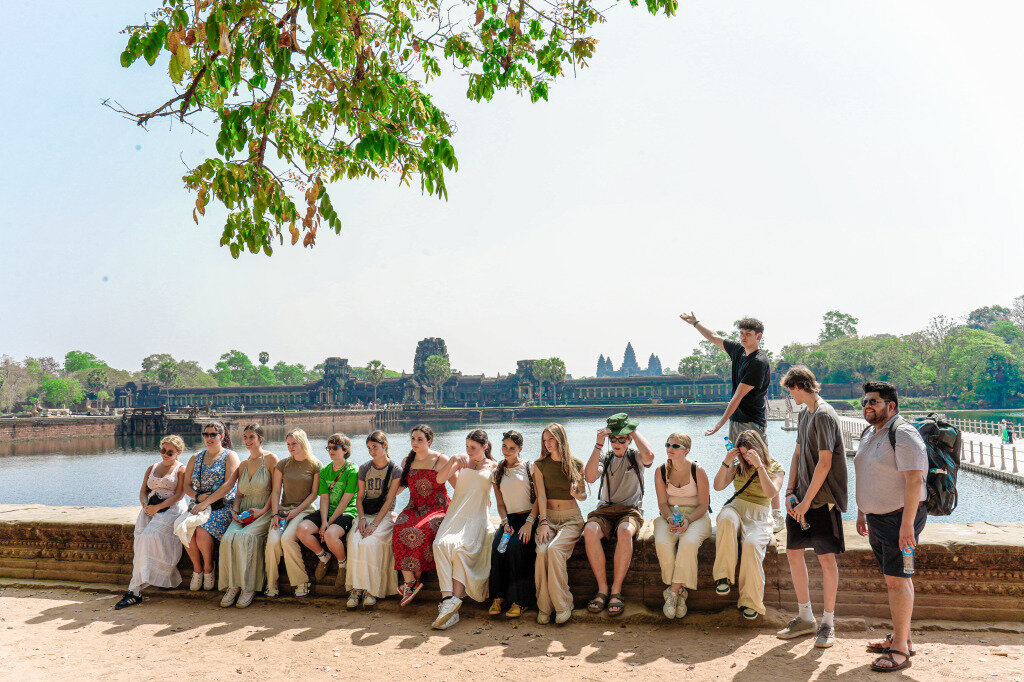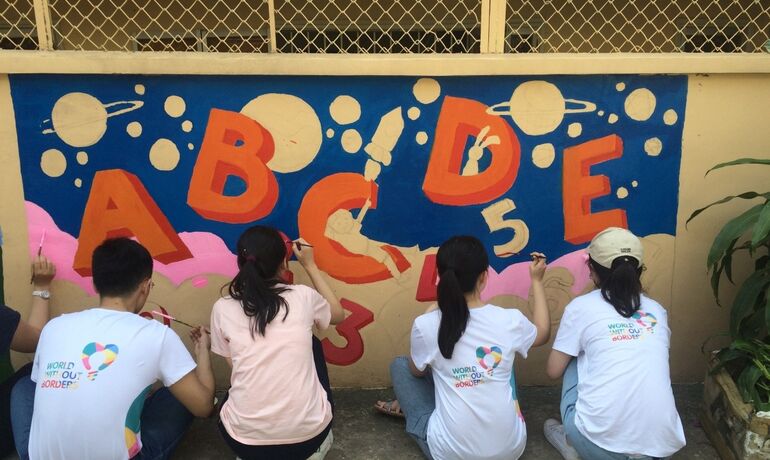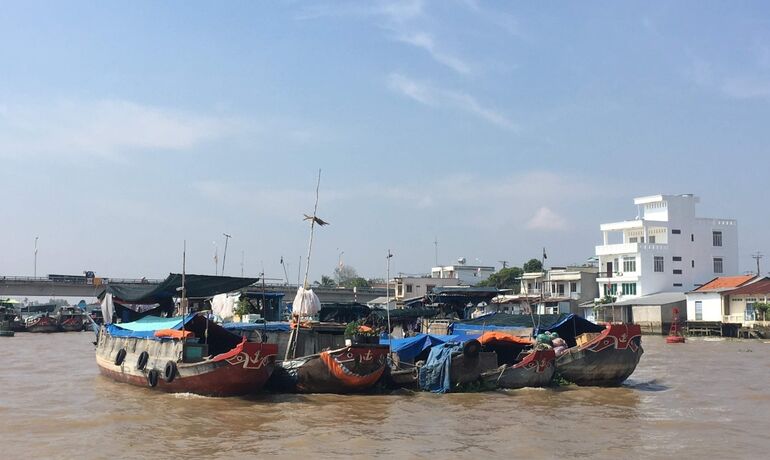In recent years, the concept of sustainability has become increasingly prevalent across various sectors, including travel and education. As awareness of environmental and social issues continues to grow, so does the desire for meaningful travel experiences that not only educate but also promote sustainability. Vietnam, with its rich culture, diverse landscapes, and pressing environmental challenges, emerges as an ideal destination for students seeking to embark on a transformative journey towards sustainability.

Why Vietnam?
Vietnam, nestled in Southeast Asia, offers a tapestry of experiences for educational travelers. From the bustling streets of Hanoi to the serene waters of Ha Long Bay, and the vibrant markets of Ho Chi Minh City, Vietnam captivates visitors with its beauty and complexity. However, beyond its tourist attractions lies a country grappling with environmental degradation, rapid urbanization, and socio-economic disparities. These challenges provide a unique learning opportunity for students to delve into the complexities of sustainability in a developing nation.

Educational Opportunities:
A sustainability trip to Vietnam presents a myriad of educational opportunities across various disciplines. Students interested in environmental science can explore the impacts of deforestation, pollution, and climate change on Vietnam’s diverse ecosystems, such as its mangrove forests and coral reefs. They can participate in conservation efforts, learn about renewable energy initiatives, and engage with local communities striving for environmental stewardship.
For those studying social sciences, Vietnam offers insights into the intersection of culture, economics, and sustainability. Students can examine the effects of tourism on local livelihoods, analyze the challenges of equitable development, and explore grassroots initiatives promoting social justice and community resilience.
Moreover, Vietnam’s rich history provides a lens through which students can understand the interconnectedness of past and present sustainability efforts. Visits to historical sites, such as the Cu Chi Tunnels or the Imperial City of Hue, offer opportunities to reflect on the legacies of war, colonization, and resilience, shaping Vietnam’s contemporary socio-economic landscape.
Experiential Learning:
One of the most impactful aspects of a sustainability trip to Vietnam is the opportunity for experiential learning. Rather than passively absorbing information in a classroom, students actively engage with local communities, environmental projects, and cultural activities. Whether planting trees in reforestation projects, collaborating with artisans to learn traditional crafts, or participating in homestays with rural families, students immerse themselves in the fabric of Vietnamese life.

Building sustainable partnership
Through hands-on experiences, students gain a deeper understanding of the complexities surrounding sustainability. They witness firsthand the challenges faced by marginalized communities, the innovative solutions being implemented, and the resilience of the human spirit in the face of adversity. Such immersive learning fosters empathy, cultural competency, and a sense of global citizenship among students.
Central to the success of a sustainability trip to Vietnam is the establishment of sustainable partnerships with local organizations, NGOs, and communities. By collaborating with reputable tour operators specializing in responsible travel, educational institutions can ensure that their trips adhere to ethical standards and contribute positively to local development.
Engaging with grassroots organizations and community-led initiatives allows students to directly support sustainable development projects while learning from local experts and activists. Whether participating in beach clean-ups, volunteering in organic farms, or assisting in educational programs for children, students become active agents of change, fostering cross-cultural exchange and mutual understanding.
Reflection and Action:
A sustainability trip to Vietnam is not merely about sightseeing or academic study; it is about reflection and action. Upon returning home, students are encouraged to critically reflect on their experiences, insights, and responsibilities as global citizens. They can leverage their newfound knowledge and skills to advocate for sustainability within their own communities, whether through organizing awareness campaigns, implementing eco-friendly practices, or supporting fair trade initiatives.
Furthermore, sustained engagement with Vietnam’s sustainability challenges is crucial beyond the duration of the trip. Students can continue to support local initiatives remotely, collaborate on research projects, or even return for internships or volunteer placements. By forging lasting connections and partnerships, students contribute to a more sustainable and interconnected world.

A sustainability trip to Vietnam offers students a transformative journey of learning, exploration, and impact. Through experiential learning, cultural immersion, and sustainable partnerships, students gain a holistic understanding of sustainability in a global context. Beyond acquiring knowledge, students cultivate empathy, resilience, and a sense of responsibility towards the planet and its people. As they embark on their educational travel journey, students not only discover Vietnam’s beauty but also their own potential to effect positive change in the world.





